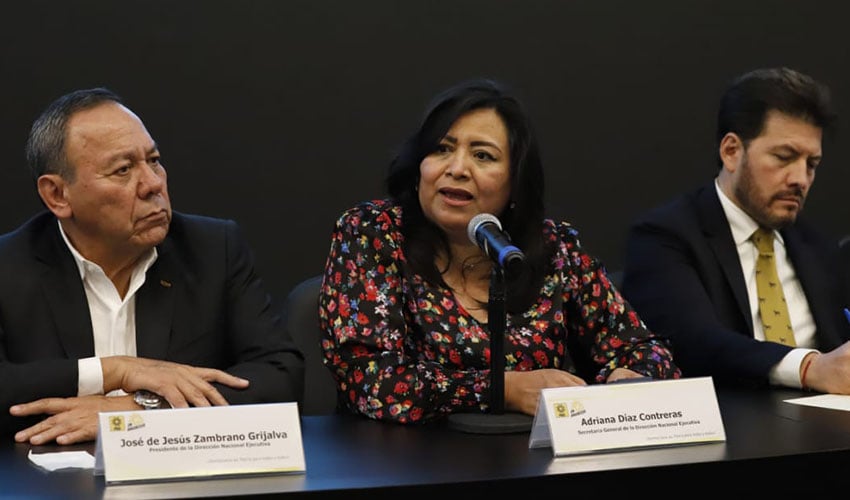A three-party alliance opposed to the government in power could be on the verge of breaking up after an Institutional Revolutionary Party (PRI) lawmaker presented a constitutional bill that would authorize the use of the military for public security tasks until 2028.
The National Action Party (PAN) and Democratic Revolution Party (PRD) – which together with the PRI constitute the Va por México coalition – expressed their opposition to the proposal, which seeks to extend the period during which the government can use the armed forces for public security tasks from five years to nine.
A constitutional reform in March 2019 created the National Guard and authorized the continued use of the military alongside the new security force until March 2024.
PRI Deputy Yolanda de la Torre presented the bill proposing the four-year extension, and her party as well as the ruling Morena party and its allies look likely to support the initiative. It will be put to a vote following a debate scheduled for next week.

The bill states that a “solid and effective” police force “is not built overnight” and therefore, while the National Guard “develops its structure, capacities and territorial establishment,” the president of the day can use the armed forces for public security tasks in an “extraordinary, regulated, controlled, subordinated and complementary way.”
The bill notes that several regions and states face a “climate of violence” created by criminal groups, which exert control over large swathes of territory. It also says that the public security work of the military has been “essential” in recent years.
De la Torre’s introduction of the bill to the Chamber of Deputies last Friday came as President López Obrador and Morena seek to put the National Guard under the control of the Department of Defense (Sedena).
PAN national leader Marko Cortés today called on PRI lawmakers to withdraw de la Torre’s bill, or vote against it.
If they don’t heed this advice, the PRI will be responsible for the breakup of the legislative and electoral alliance that is Va por México, he said, adding that the coalition would lose its “reason to exist.”
He told the newspaper Milenio that the proposal is “absolutely contradictory” to the alliance’s commitment to not support modifications to the constitution – which Morena and its allies can’t push through on their own because they don’t have the required two-thirds congressional majority – or the militarization of the country.
Cortés said he has expressed his concerns to PRI leader Alejandro Moreno, who “committed to review the issue.”
For his part, PRD leader Jesús Zambrano said that the bill put forward by de la Torre is “not only concerning but also offensive” and that it “wouldn’t make electoral sense” for the Va por México coalition to run in upcoming elections, including the national presidential election in 2024, if the PRI does not respect the coalition platform.

Zambrano said he hoped that the PRI would scrap the constitutional bill “for the good of Mexico.”
However, de la Torre said that she would only be prepared to withdraw her bill if PAN governors commit to tackling insecurity in their states after 2024 without the assistance of the military.
“If they say they are ready [to combat insecurity on their own], my proposal would have no reason to exist because they would guarantee they have the capacity to do what the army does,” she stated.
The lawmaker said she lacked confidence in the capacity of state and municipal police to face up to heavily armed criminal organizations. “The day after the army is withdrawn from the streets” – which as things stand would occur in March 2024 – “organized crime will set the whole country on fire.”
López Obrador on Monday welcomed the proposal to extend the period during which the government can deploy the armed forces to bolster public security efforts, and called on the PRI to divorce itself from the PAN’s “rancid conservatism.”
The president – who previously appealed to the PRI to support his ultimately unsuccessful plan to overhaul Mexico’s energy sector – said that the PRI’s help in Congress would be very useful, but stopped short of endorsing a political alliance with Mexico’s once hegemonic party.
Questioned about his campaign promise to remove soldiers from the nation’s streets and return them to their barracks, López Obrador – who has relied on the military for a broad range of non-traditional tasks – admitted that he had changed his mind on the issue.
“I changed my mind when I saw the [security] problem I inherited,” he said.
With reports from Aristegui Noticias, Animal Político, Milenio and El Universal
